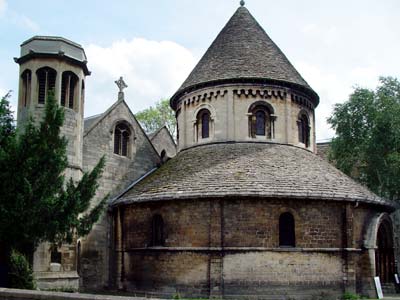I have been busy with research today. During the course of my day I came upon the following from a British minister, J. C. Ryle, from the nineteenth century. He was educated at Oxford, not Cambridge. Below is a portion of his exposition of The Parable of the Rich Man and Lazarus.
“There was a rich man who was dressed in purple and fine linen and lived in luxury every day. At his gate was laid a beggar named Lazarus, covered with sores and longing to eat what fell from the rich man's table. Even the dogs came and licked his sores. The time came when the beggar died and the angels carried him to Abraham's side. The rich man also died and was buried. In hell, where he was in torment, he looked up and saw Abraham far away, with Lazarus by his side” (Luke 16:19-23).
J. C. Ryle (1816-1900) was an evangelical Bishop who knew how to apply the teaching of the Scriptures to the society in which people lived. In this extract from his work Practical Religion he challenges the developing ideology which claimed that all men should be equal in wealth. Ryle countered such arguments by demonstrating that inequality is a fact of life in a fallen world and can be an instruction toward challenging character development in the poor and the rich.
Many in every age have disturbed society by stirring up the poor against the rich, and by preaching the popular doctrine that all men ought to be equal. But so long as the world is under the present order of things this universal equality cannot be attained. Those who speak against the vast inequality of men’s fates will doubtless never lack an audience; but so long as human nature is what it is, this inequality cannot be prevented.
So long as some are wise and some are foolish-some strong and some weak-some healthy and some diseased-some lazy and some diligent-some prudent and some careless; so long as children reap the fruit of their parent's bad behavior; so long as sun, and rain, and heat, and cold, and wind, and waves, and drought, and plague, and storms are beyond man’s control-so there will always be some rich and some poor. All the political order in the world will never erase the fact that, “There will always be poor people in the land.” [Deuteronomy 15:11]
Take all the property in our country by force this very day, and divide it equally among the inhabitants. Give every man above the age of twenty an equal portion. Let everyone share and share alike, and begin the world over again. Do this, and see where you would be at the end of fifty years. You would have just come back around to the point where you began. You would find things just as unequal as before. Some would have worked, and some would have been lazy. Some would have always been careless, and some always scheming. Some would have sold, and others would have bought. Some would have wasted, and others would have saved. And the end would be that some would be rich and others poor.
Let no one listen to those vain and foolish talkers who say that all men were meant to be equal. They might as well tell you that all men ought to be of the same height, weight, strength, and skill-or that all oak trees ought to be of the same shape and size-or that all blades of grass ought to always be the same length.
Settle it in your mind that the main cause of all the suffering you see around you is sin. Sin is the great cause of the enormous luxury of the rich, and the painful degradation of the poor-of the heartless selfishness of the highest classes, and the helpless poverty of the lowest class. Sin must first be cast out of the world. The hearts of all men must be renewed and sanctified. The devil must be locked away. The Prince of Peace must come down and take His great power and reign. All this must be done before there can ever be universal happiness, or the gulf filled up that now divides the rich and the poor.
Beware of expecting a millennium to be brought about by any method of government, by any system of education, or by any political party. Work hard to do good to all men. Pity the poor, and help in every reasonable endeavor to raise them from their life of poverty. Seek to help to increase knowledge, to promote morality, and to improve the earthly condition of the poor. But never, never forget that you live in a fallen world, that sin is all around you, and that the devil and the demons are everywhere. And be very sure that the rich man and Lazarus are emblems of two classes, which will always be in the world until the Lord returns.
J. C. Ryle, Practical Religion (from chapter 13).
Brief comment: The fact that we live in this fallen world where inequities abound, where wealth and poverty reside adjacent to one another, provides ample opportunity to conduct ourselves as Christians, extending love and kindness indiscriminately to both the wealthy and the poor and to people who fall along every other kind of disparity and inequity.











